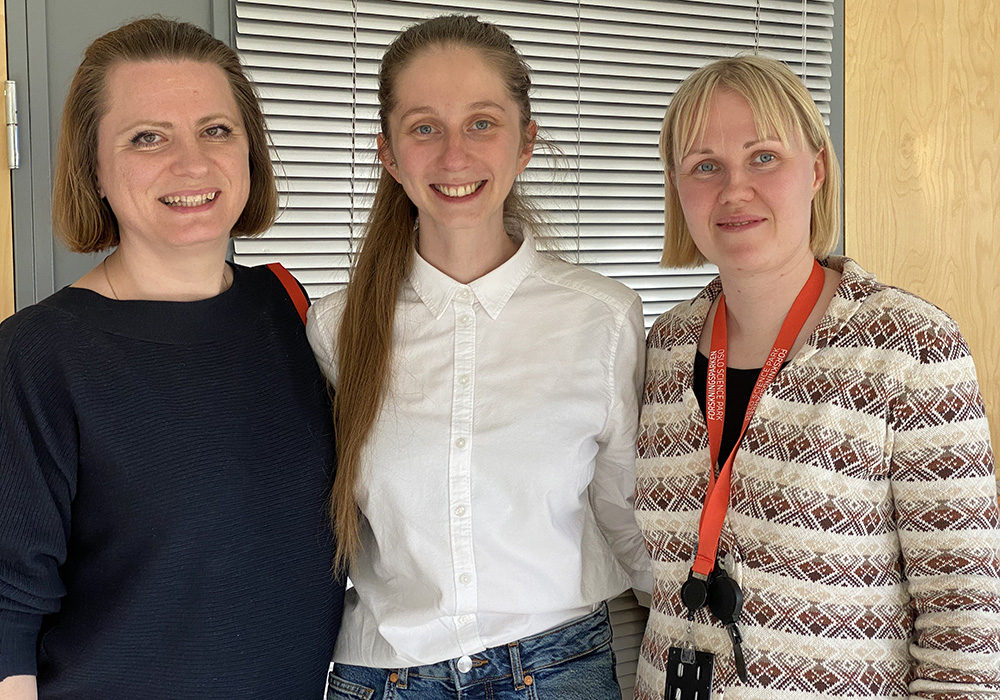Can you describe your PhD project - what were you trying to discover and what were the overall aims of the project?
CRISPR technology has tremendous potential for clinical applications. This instrument gives us an opportunity to target virtually any desired gene and introduce changes to it, thus providing the means to cure diseases that arise from genetic mutations. However, before CRISPR-based therapy can find its way to the patient’s bedside, it still requires some improvements. Currently, the standard CRISPR Cas9 approach relies on molecular scissors for cutting the DNA, and the repair of these cuts then depend on the internal cellular DNA repair machinery. There are two possible pathways, which can take care of DNA repair. The most common one simply does the “trimming” and “sealing” of the broken DNA ends. This often leads to disruption of the gene function. Such a pathway has certain therapeutic potential; however, it is limited to the cases where gene function needs to be eliminated. The second, more precise, DNA repair pathway is homology-directed repair. This pathway “renovates” the cut gene based on so-called DNA “repair templates”. Luckily, such a template can be co-delivered with the DNA scissors inside the cell. This mechanism allows to actually “repairing” the gene sequence to the desired state and therefore is most relevant for the therapy-oriented research. The main goal of my PhD work was to seek the method, which would help to improve CRISPR Cas9 performance and make it more efficient in achieving precise editing.
What were the main findings from your project and what is their significance to this area of research?
In order to achieve the outlined goal, our group has made use of the naturally existing DNA repair proteins and tested whether they can aid the editing when combined with molecular scissors. We have extensively searched through more than 450 DNA repair compounds and identified Cas9-POLD3 – a novel fusion protein that increases the precise editing and makes it faster in comparison to the classic variant. My PhD thesis additionally provides the latest overview of the CRISPR gene-editing field, describes the most pressing problems, and perspective solutions.
What have you most enjoyed about your project?
I enjoyed the complexity of the field and learning plenty of interesting things on many levels: molecular biology, stem cell biology, and even a bit of animal model studies. Such a broad spectrum gives one a lot of perspective and useful research experience.
What motivates you to do your research?
Curiosity is my biggest driver. Every day there are some new discoveries – the rapid progress of the technology really inspires me. And then there is also a sense of greater purpose: the CRISPR technology, when evolved to its safer stages, would completely change the way patients with different genetic disorders can be treated. It will give a chance to live a normal life to many people, who currently cannot be cured by the conventional methods.
How have you found being a PhD student at NCMM?
NCMM has quite diverse research units and it is interesting to talk to people with different backgrounds. Working in an international environment is very stimulating – I have met so many wonderful people from all over the globe! I received great support from the core administration team, so it made my life as a PhD student in the new country much easier in many ways.
What are your plans for the future?
I will continue doing research in the same field, but over the ocean. I will be moving to Boston to continue my work as a postdoc in a high-throughput biology lab at the Broad Institute.
